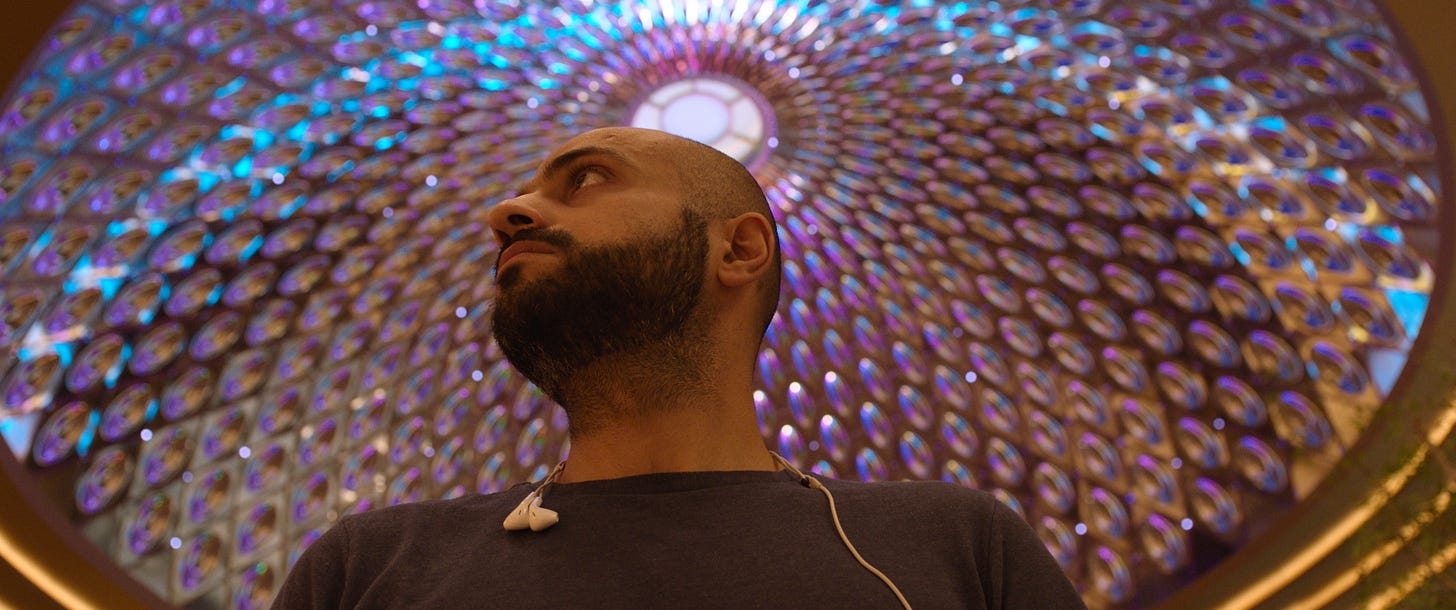After Work will have its UK premiere on the 27th of January at London’s Bertha DocHouse as part of the Italian Doc Season.
One of the great strengths of Erik Gandini’s After Work is how it contextualises the attitudes to employment in each country. In the opening moments, we’re introduced to a father and daughter in South Korea, the father has spent the last 15 years only working and sleeping – often staying in the office from 7am to 11pm.
Later, in an interview with the former minister of employment and labour, Kim Young Joo, she explains that the Korean work ethic has its roots in the poverty that the country suffered before finding its footing on the global stage through electronics manufacturing and programming.
While Gardini’s mission statement for the film is to explore how humans will respond to artificial intelligence taking up to 50% of jobs in the next 15 years, many of the most interesting moments of the film come through the contrasting work ethics of the different countries highlighted.
From South Korea, we jump to Italy, which has the highest proportion of NEET (Neither in Employment, Education or Training) young people in Europe. Nearly 30% of Italians between 20 and 34 are in this category, not having to work due to generational wealth.
The more hedonistic lifestyle of the NEET generation is countered by the experiences of the super-rich. Rory Marzotto is a horse breeder, filling their days with passion projects due to not having to work, and their partner Ferdinando Businaro is a businessperson who enjoys working and rarely takes time off. Does this enjoyment come from not having to worry about money though?
If we look at another Italian with generational wealth, Armando Pizzoni owns and maintains the Garden of Valsanzibio. He works hard and takes pride in this, much to the chagrin of his father – according to one of his interviews – yet arguably, he too lacks this need. The gardens are a passion project and a successful one.
In America, 768 million vacation days were unused in 2018, representing around $65.5 billion in forfeited benefits, according to the No Vacation Nation study conducted by the US Travel Association's Project Time Off. Unlike many other countries, the US has no law requiring paid time off and its nationalised work ethic is rooted in the ‘American Dream’.
It's during this section of the film that we start to dig into the impact of artificial intelligence, as well as the increased surveillance and monitoring of workers via technology. Amazon delivery driver Astrid Moss highlights how we – as workers – constantly shift our boundaries to keep working. Happy in her job for the most part, in her interviews, she discusses a level of oversight that would make her uncomfortable in her work, yet we can see this already in place as Amazon fits continuously running cameras into its delivery vans and uses algorithms to monitor drivers.
This slippery slope towards automation begs the question: How will people live when they are no longer required to work?
The concept of a Basic Universal Income, which would replace wages for workers who are no longer required, sounds idyllic. It would enable people to follow their passions instead of spending energy and time on menial jobs. Yet, when the film moves to Kuwait, this idea looks less appealing.
Kuwait has been able to distribute its oil wealth throughout the population with its right-to-work scheme, which ensures an income for nationals. This has led to over-hiring, with multiple people assigned to do the work of one. Through talking heads, After Work shows a workforce essentially forced to do nothing. Employees commute to offices where they sit out their working hours watching Netflix or reading books, and instead of being happy to receive payment for doing nothing, they are unfulfilled.

Our inability to separate ourselves from our work becomes the overriding theme of the film. If 50% of jobs are truly going to be lost soon, it will take more than a universal income to make people happy. We need fulfilment from something in our lives and as work is a requirement for most people, this easily fits into that. South Korea is implementing policies to get people away from their office computers, and Kuwait is paying people to do nothing.
After Work doesn’t have many answers for what to do about our work culture, but it does highlight the many problems with it. If a universal income is only enough to sustain us, and not enough to encourage hobbies and passions, then it will lead to greater levels of dissatisfaction.
Hitting the right notes between philosophically interesting and relatable, After Work is an excellent piece of work that is gorgeously shot by Fredrik Wenzel, whose work on Ruben Östlund’s The Square and Triangle of Sadness has seen him win the Palme D’Or twice.
Director: Erik Gandini







